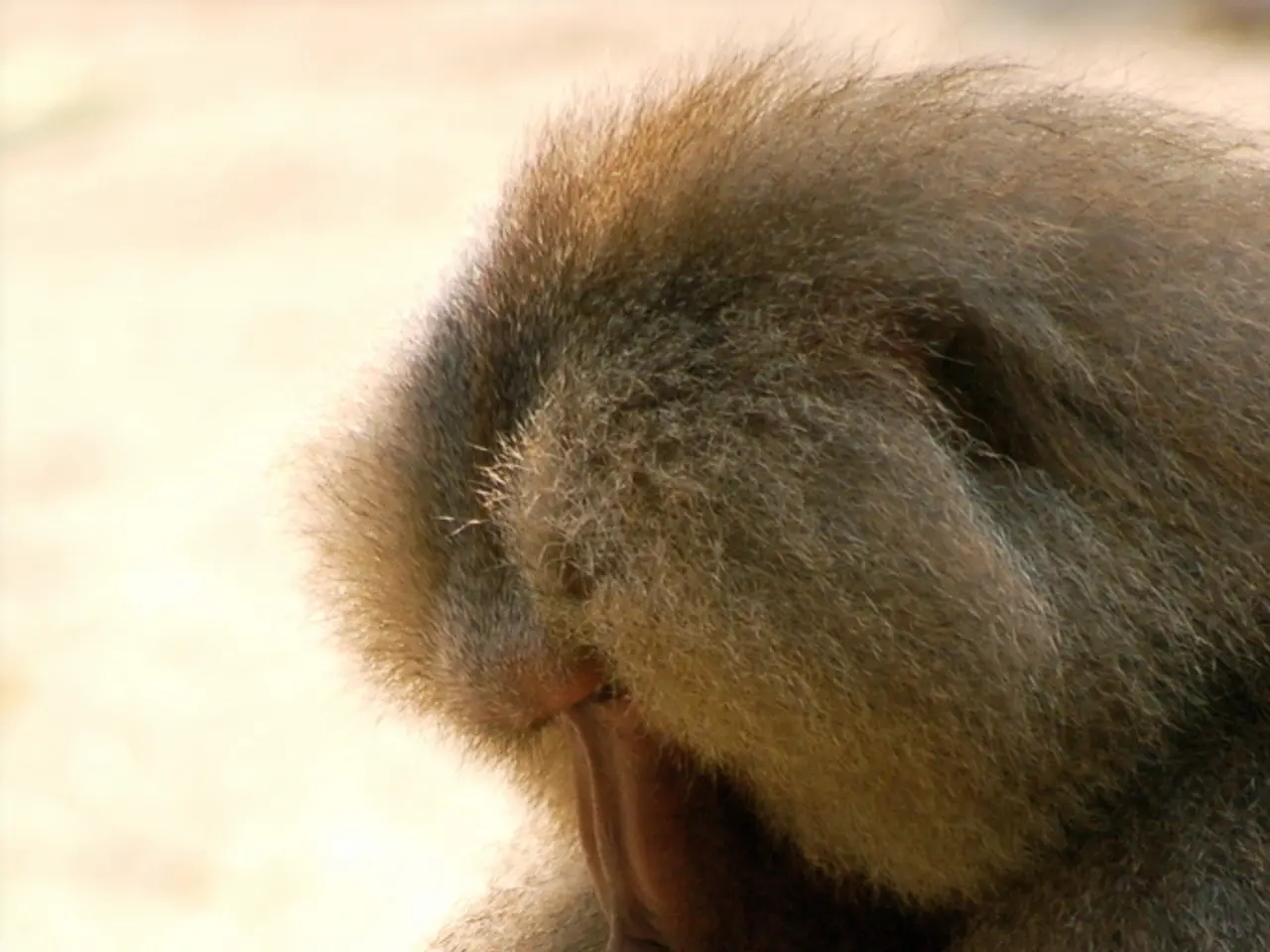Unpleasant counterparts return once more
=====================================================================================================
Max Goldt, a renowned German writer, columnist, and musician, has recently published a new book that delves into the intricacies of everyday life. The book, which has been previously published in ZEIT issue 5/19, page 38, is a witty and insightful exploration of themes such as banality, the absurdity of everyday life, and what could be called everyday madness.
The Orangutan Drawing: A Visual Metaphor
One striking image in Goldt's book is a drawing of an orangutan sitting in a green office chair. The orangutan, with a weary expression and holding a cigarette in its right hand, serves as a visual metaphor for the banality and absurdity of everyday life. This primate, intelligent yet out of place in a human context, highlights the uncomfortable mismatch between natural instincts and societal conventions.
Exploring the Everyday with Goldt
- Banality
- Goldt brings an almost poetic or philosophical attention to the mundane details of everyday life, revealing their hidden peculiarities and often comic nature.
- Absurdity of Everyday Life
- Goldt shows how normal life is full of illogical, contradictory, or surreal moments, pointing out how repetitive routines, social conventions, and trivial problems often produce absurd situations.
- Everyday Madness
- Goldt's work suggests that everyone’s daily life contains elements of this small-scale madness, which can be both comical and a commentary on the human condition.
A Critique of Journalistic Language
Interestingly, Goldt's text also criticizes the thoughtless use of certain terms, including "banality", "absurdity", "everyday madness", "tricks", and "pitfalls", by journalists when writing about his work. He argues that these terms are often used without a deep understanding of the nuances and complexities of his work, reducing it to simplistic and superficial interpretations.
In conclusion, the orangutan drawing in Max Goldt’s book symbolically ties into his exploration of the strange, absurd, and often overlooked aspects of daily existence. Through the juxtaposition of something wild and out of place, Goldt highlights the contrast between our civilized façade and the underlying eccentricities of life and behavior. His work invites readers to look more closely at the banal and absurd to uncover the “madness” that makes ordinary life so uniquely human.
Read also:
- Today's most impactful photographic moments
- Support for Eric Adams in The Post's Letters to the Editor on August 13, 2025
- Roosting Shark and Rambunctious Red Squirrels: Unconventional House Rental in Yorkshire Involving Aquatic Marvel, Squirrely Mayhem, and Mystical Planning Regulations
- Legal Dispute Dismissed with Humor: Supreme Court Laughs off Another Civil Matter Mislabeled as Criminal Prosecution








